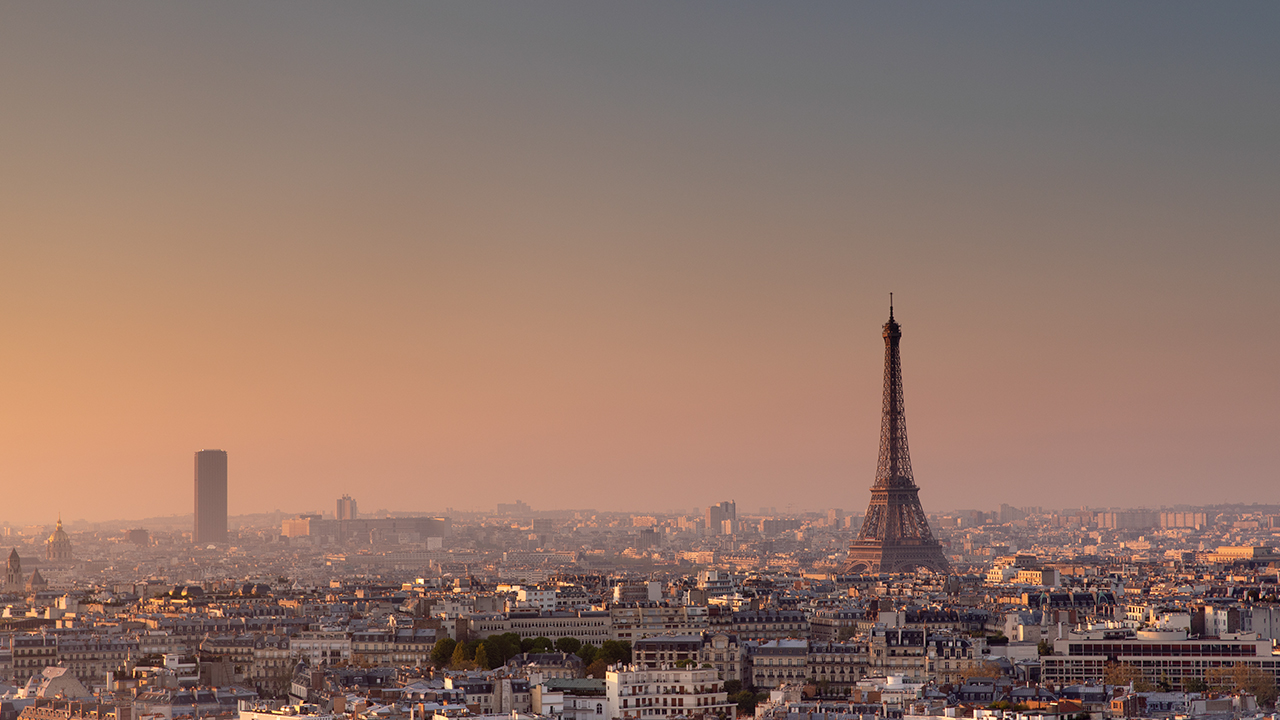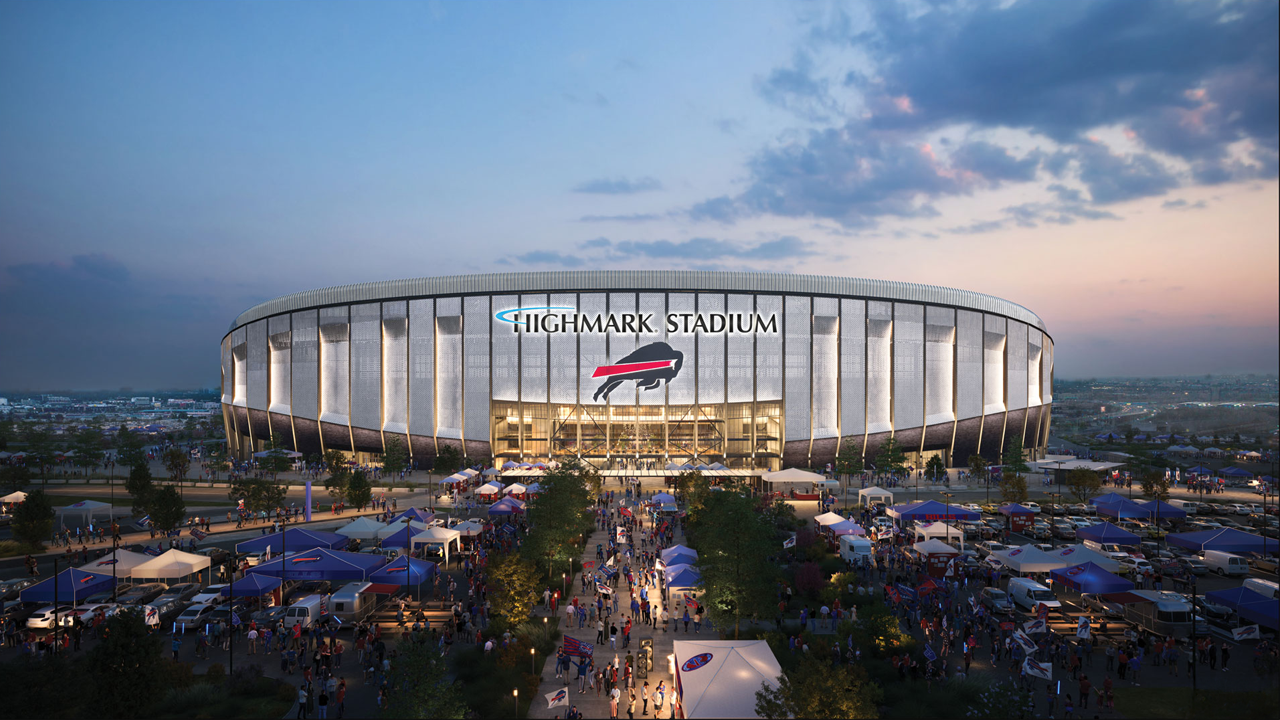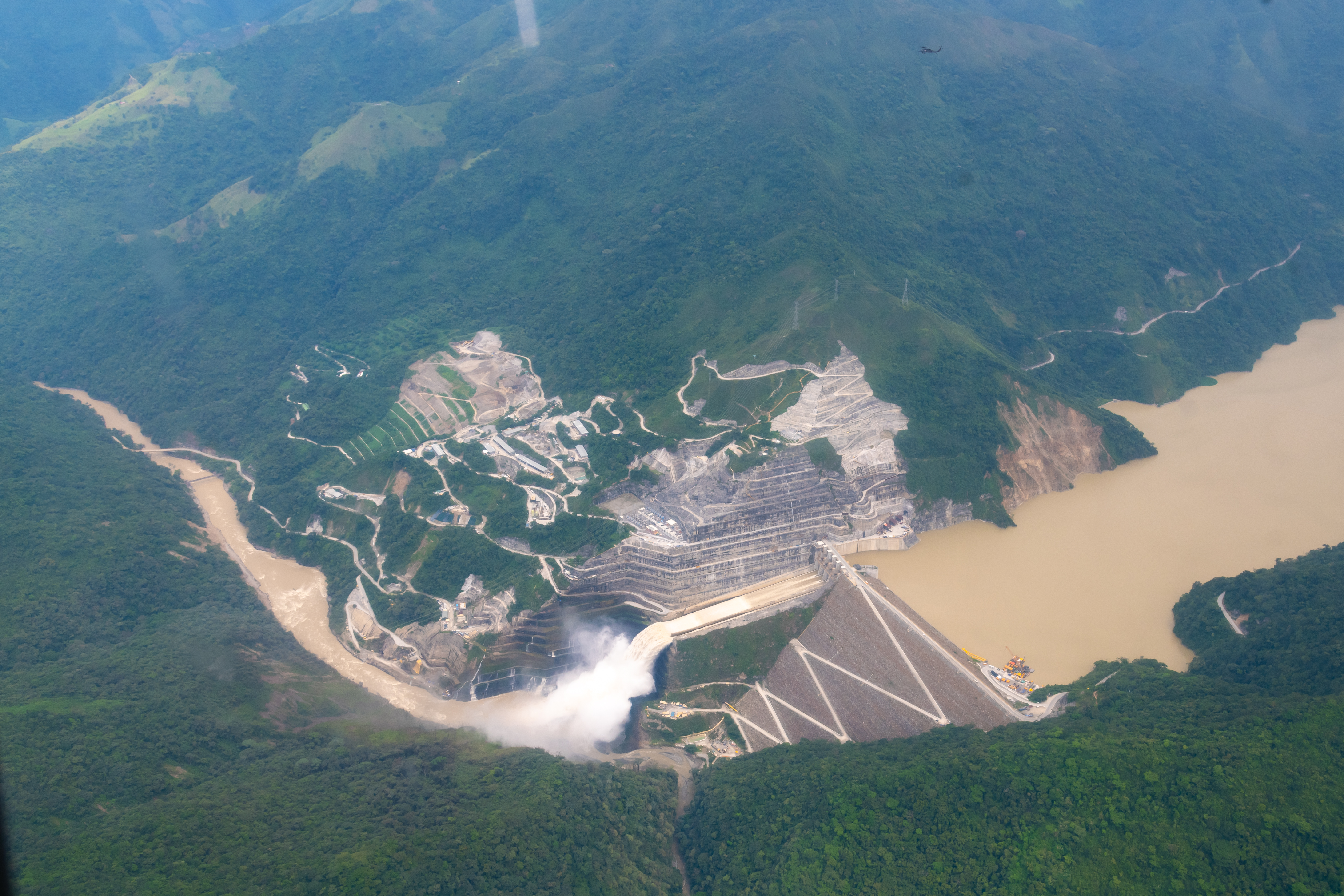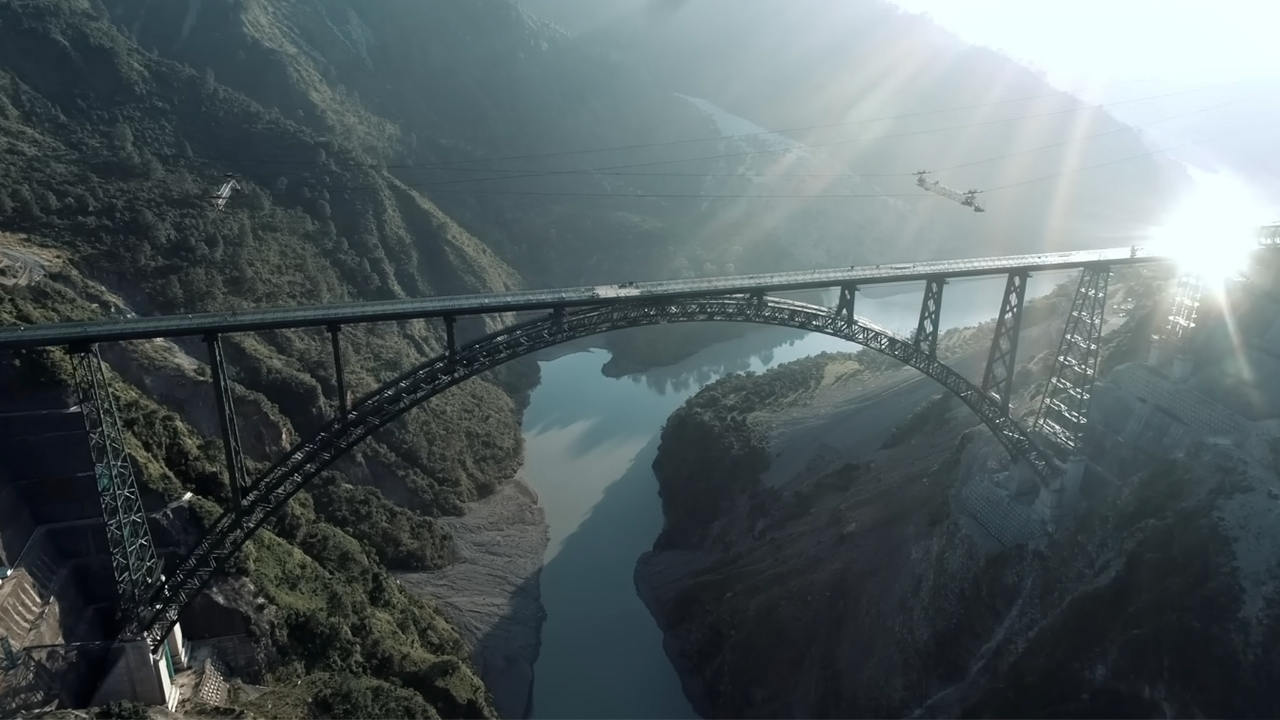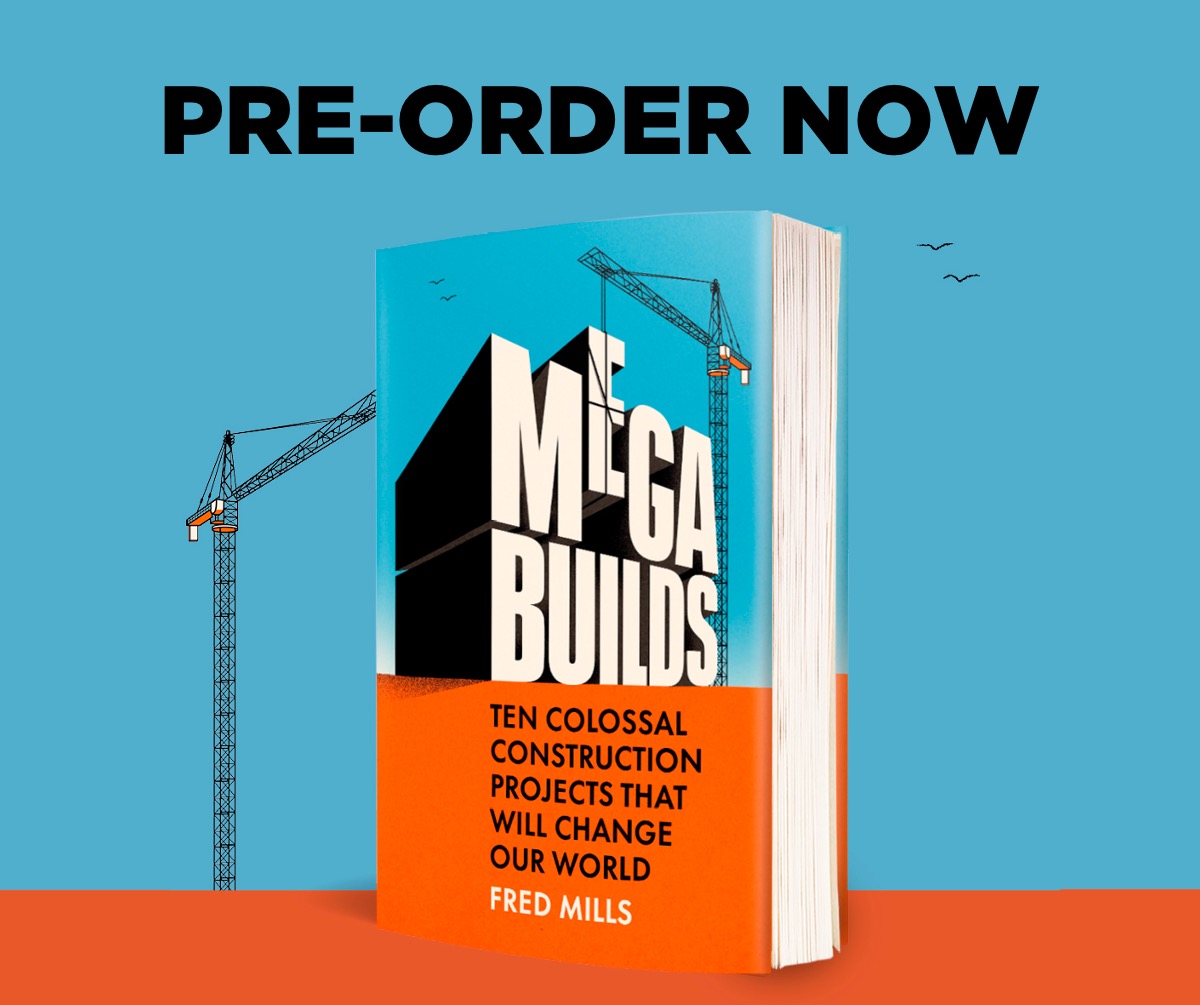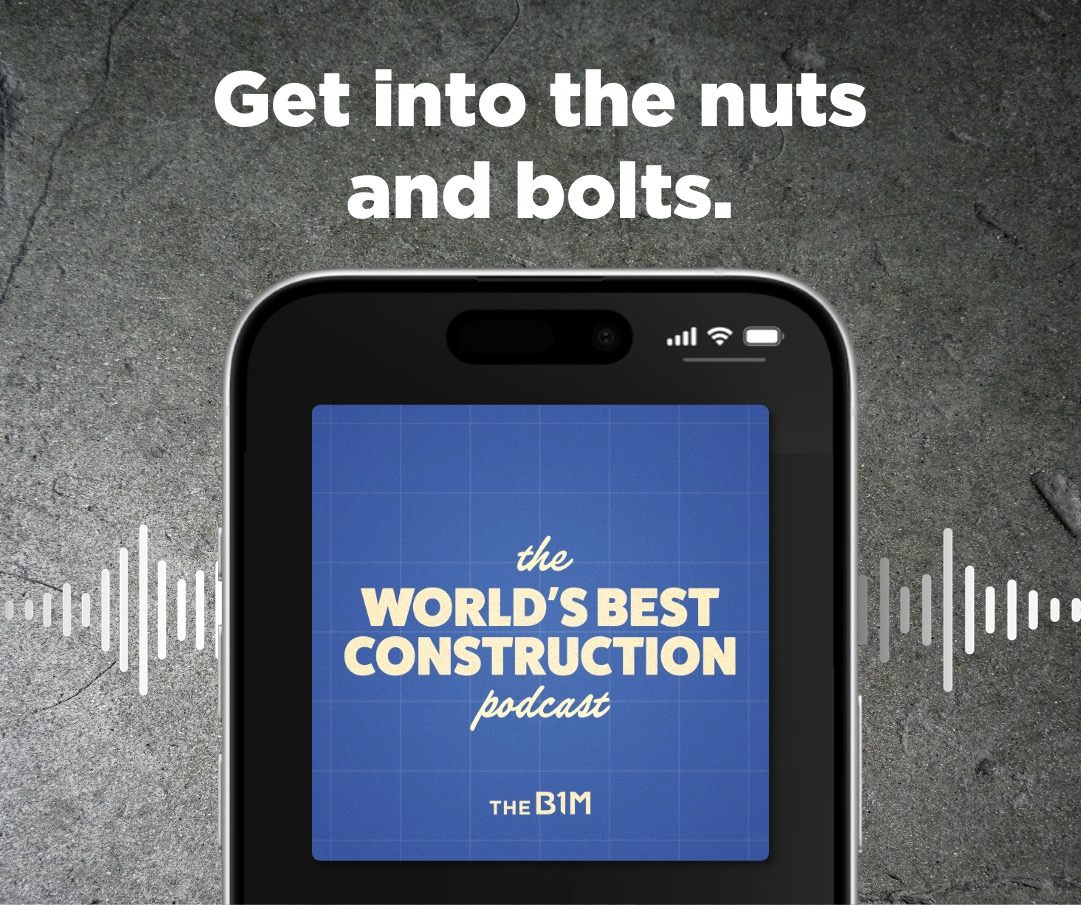Why The Next Olympics Are Already a Mess
- Youtube Views 1,215,973 VIDEO VIEWS
Video narrated and hosted by Fred Mills.
IT’S ALREADY BEEN dubbed the “Hot Mess Olympics”.
By all accounts the next Games are in shambles.
Overbudget by billions. On its third proposal for venues. Deeply unpopular with the public. And u-turn after u-turn in planning thanks to several elections and changes in government.
But perhaps the wildest part of all of this could be… that you don’t even know what city these Games are taking place in?
Over the last few decades, we’ve seen the Olympics in Barcelona, Sydney, Athens, Beijing, London, Rio, Tokyo and Paris. We say these cities and you can immediately conjure an image in your mind. These are iconic destinations.
So, it may come as a bit of a surprise that after LA the Olympics will be in the Australian city of… Brisbane?
So… where on Earth is Brisbane exactly?
Well, it’s north of Sydney and way north of Melbourne in what is affectionately referred to as the “sunshine state” of Queensland.
Temperatures here hit up to 40°C when it isn't the rainy season. There are crocodiles, koalas, the Iriwins, and some two and a half million people.
The state is famous for its colourful political characters...
… and its beloved wildlife sanctuaries.
As well as rollercoasters, skyscrapers on the beach, and its record number of retirees.
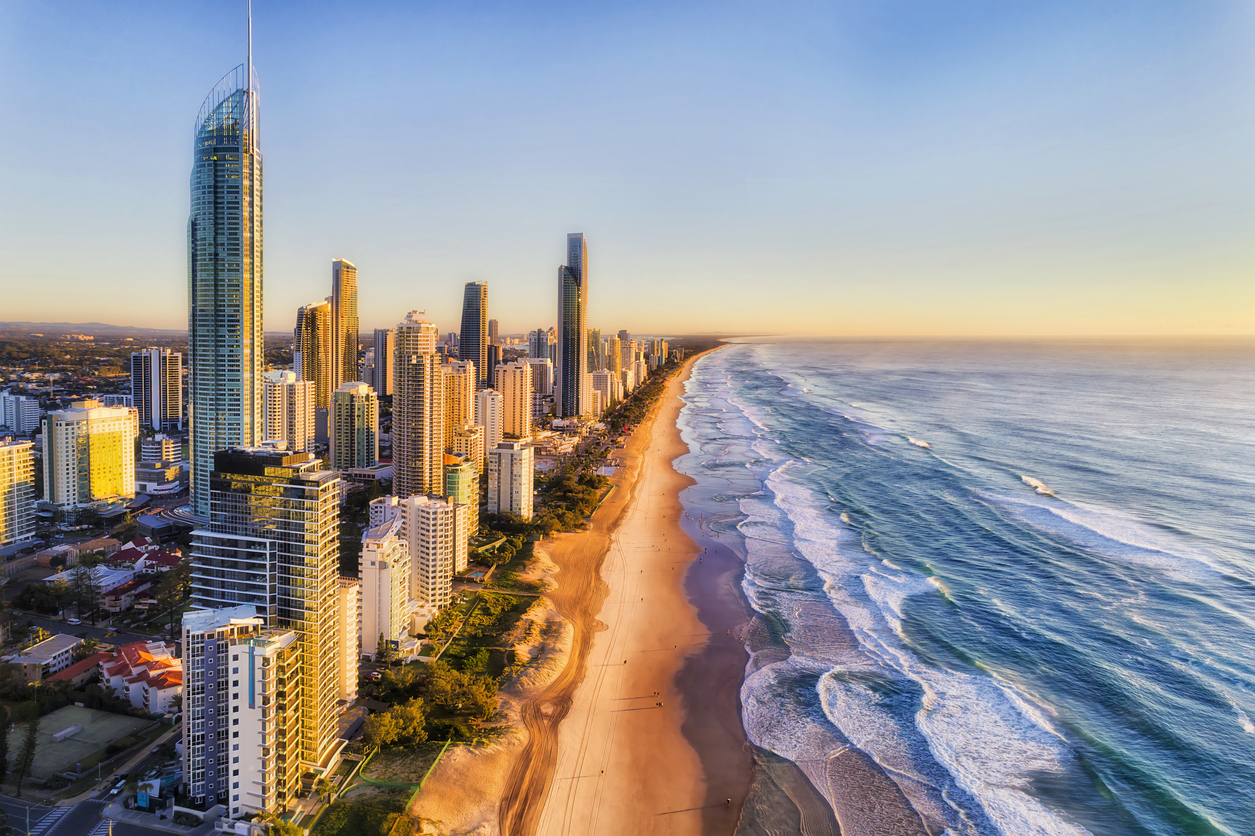
Above: The Gold Coast is famous for its skyscrapers on the beach.
“Brisbane's grown tremendously in the last few decades, primarily off the back of internal migration. There are a lot of migrants from, for example, Melbourne and Sydney, who moved to Brisbane largely in search of cheaper housing prices and nice, warm weather with lots of sunshine,” explains Dr Thomas Sigler, Associate Professor of Human Geography at the University of Queensland.
For our American viewers, Queensland probably most closely resembles Florida.
So how did the Florida of Australia get the world’s most famous sporting event? Well, politics, of course.
But Brisbane has actually been quietly wanting the Games for a very, very long time.
The city originally put in a bid in the early 80s for the 1992 Olympics.
They proposed reusing the venues they had used for the 1982 Commonwealth Games and splitting the Olympics up into zones across the city, rather than all in one enormous expensive stadium complex.
Those Games eventually went to Barcelona… but Brisbane came very close.
The year 2000. The millennium bug. Britney Spears. Big Brother. And, the Sydney Olympics.
The 27th Olympiad was a roaring success for both Sydney and Australia.
New world records were set.
The opening ceremony featured Aboriginal and Torres Strait Islanders, marking a turning point in global recognition of Indigenous Australians.
And there was a new standard set for an environmentally friendly Olympics.
From a construction perspective the Olympics completely transformed Sydney.
The Sydney harbour Tunnel was completed, as was the Ultimo-Pyrmont light rail system, the Airport City Link, and a railway loop line to connect the Olympic Park with the Sydney rail network.
Additionally, new sports venues were built or renovated, such as the Sydney International Regatta Centre, the Sydney Showground, and the NSW Tennis Centre.
Major public parks, plazas and city sidewalks were completely redesigned, repaved and furnished with modern street lighting and newly planted trees.
One of the most successful aspects of the 2000 Games was the transformation of Homebush Bay, a run-down area of the city which was previously used for abattoirs and depositing liquid waste. This became Olympic Park.
Between 1999 and 2000, 5,660 new housing units were built here. Nearby brownfield sites were also redeveloped, with new residential hotspots emerging in the surrounding areas.
It is currently home to 230 businesses and boasts more than 14M visitors a year.
“Overwhelmingly, I think, Sydney-siders view the Sydney Olympics as a turning point in Sydney's development,” adds Sigler. “A lot of people predicted that Sydney's economic fortunes would really suffer in the period after the 2000 games, but in fact, the exact opposite happened. Sydney really hit its growth spurt. It became a global city, And in fact, all of the stadium infrastructure that was built for the 2000 games to this day is very well utilized.”
The 2000 Olympics not only won gold as a media event, but lifted Sydney up in a truly meaningful way.
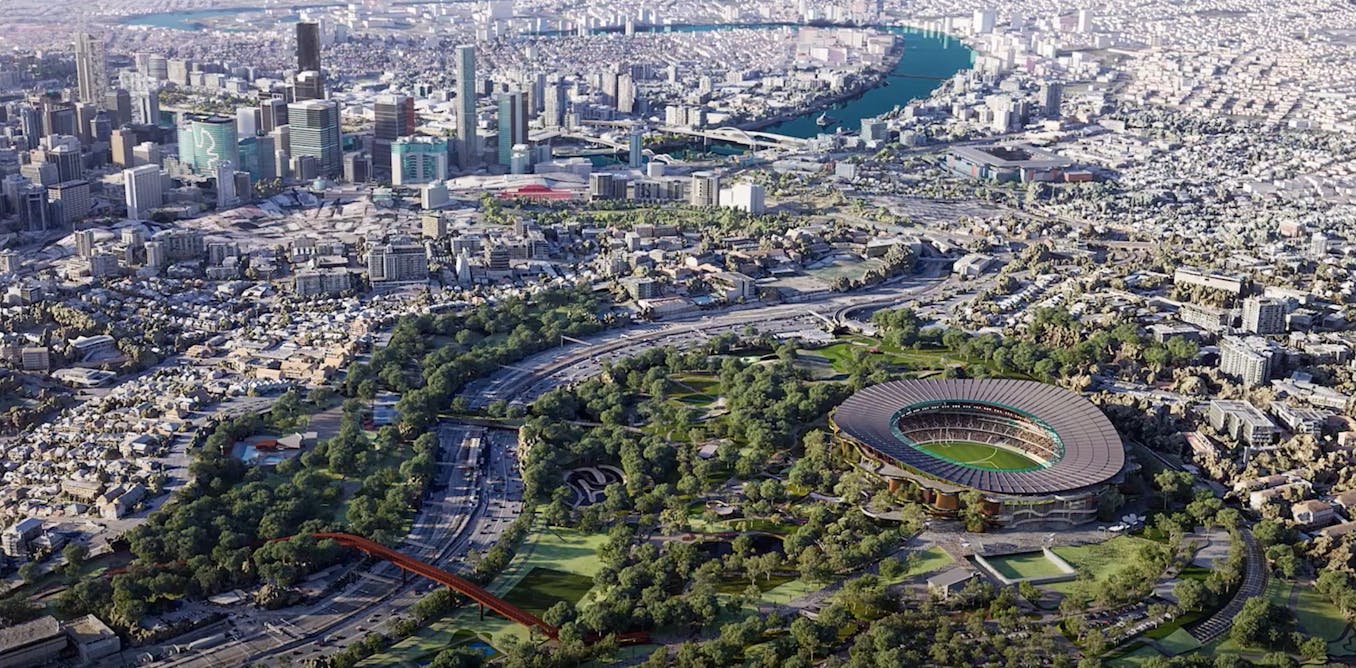
Above: Brisbane's third plan for the Olympics at Victoria Park. Image courtesy of QLD government.
Now, Brisbane wanted a piece of the Games more than ever.
“Brisbane's Olympic bid was tied to the fact that Brisbane's economic development strategy is very much geared towards becoming a world city.
“Part of that was coming up with globally scaled events and infrastructures. Brisbane was seen to be part of an emerging class of new world cities, which included others such as Oslo, Copenhagen, Barcelona, cities of between three and five million that weren't quite as well known as London and New York, but were emerging.”
Forty years after their original bid, Brisbane bid again. But this time, they won.
But by 2021, the system had radically changed.
Cities no longer compete against each other in a bidding process where they would often spend tens of millions of dollars on promotion and lobbying.
Bids, like Brisbane’s original 1992 effort, included elaborate presentations, international travel, and campaign-style efforts.
This process became controversial, several cities such as Boston, Rome and Hamburg withdrew from the 2024 bidding process because of the immense public backlash.
It didn’t help that there were allegations of vote-buying and corruption, like those that followed Rio 2016.
Since 2020 the IOC has introduced a new reformed bidding process. They now work proactively with cities in a “dialogue phase” before formal bidding. This means that no actual campaigns are carried out and cities are effectively chosen.
And those cities are chosen far earlier, giving the hosts longer to prepare. Instead of the usual seven years, cities will now get eleven.
So when it came time to choose the 2032 Games Brisbane was effectively competing against… no one.
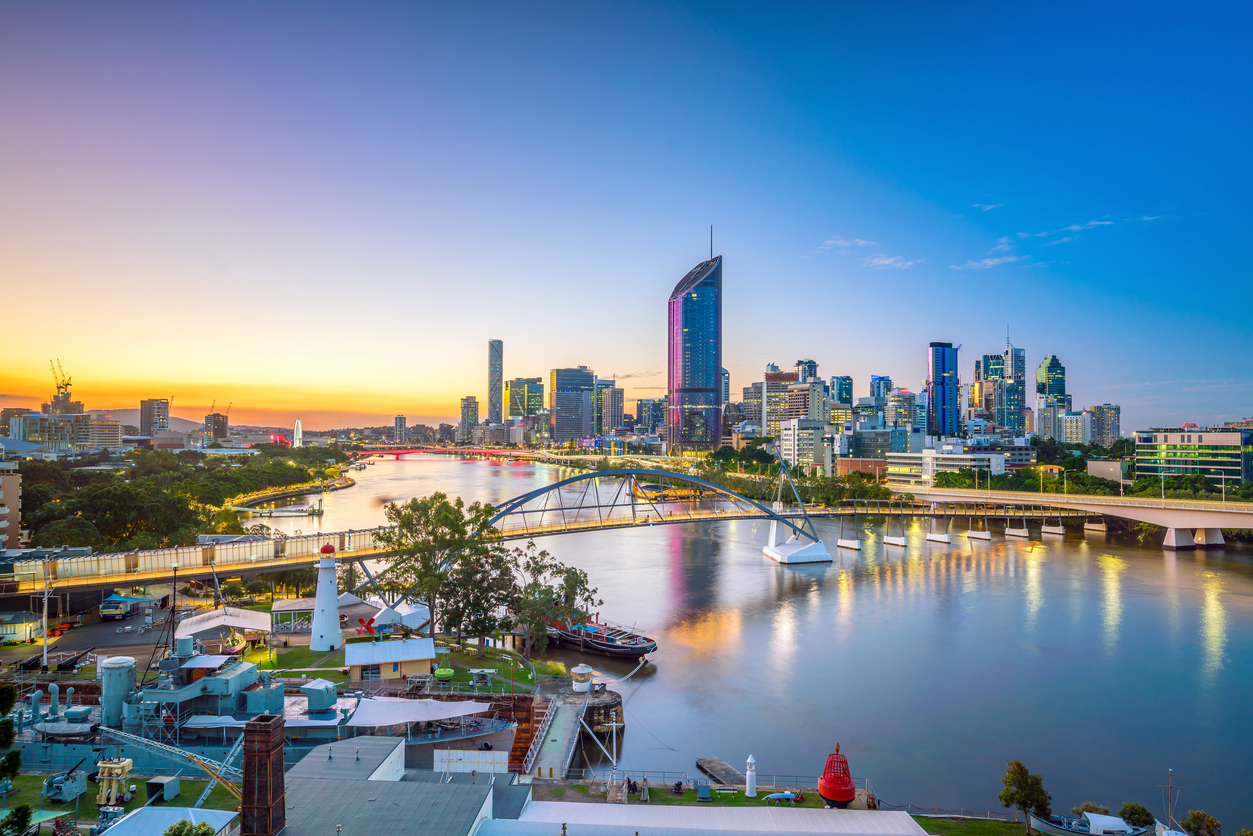
Above: The unlikely city of Brisbane won partly because no one else bid.
“The Brisbane Olympic bid was concocted quite a few years ago, and this is certainly not the first time Brisbane has bid. However, during the pandemic, there was an opportunity.”
They pitched a remarkably similar event to one they did for 1992.
Events would be staged at more than 30 venues across south-east Queensland in Brisbane, the Gold Coast, Sunshine Coast, Logan, Ipswich and Redlands. Making this more of a Queensland Olympics than just a Brisbane one.
“There's been discussion of hosting events as far north as Cairns, which is nearly 2,000 kilometers north of us, and several events will certainly go to the Sunshine Coast and Gold Coast. So seeing it as a regional effort or a whole-of-state effort rather than just concentrating in one city.”
Brisbane also boasted that 80% of their proposed venues already existed or would be temporary.
The centrepiece of their pitch was the expansion of the Gabba stadium.
The Gabba is a Brisbane institution. It’s been around since 1895 mainly hosting cricket and Australian rules football.
However it only has a seating capacity of 40,000 people - shy of the 50,000 plus needed for the Olympics.
The initial plan was to demolish the stadium and build a new Gabba capable of holding the 10,000 extra people as well as a new pedestrian plaza - the cost of that was estimated to be $1BN… which later rose to $2.7BN.
The plan itself drew public outrage.
However, this demolition would also see the destruction of a heritage listed building: a school.
And you would see the closure of two vital thoroughfares Vulture Street and Stanley Street for the entirety of construction.
To make things worse, Melbourne withdrew from hosting the 2026 Commonwealth Games. Their Games had ballooned from roughly $2.6BN to an estimated $6 to 7BN and just simply were not worth it anymore.
Fear grew that something similar could happen to Brisbane.
The original bid was spearheaded by former Queensland Premier Annastacia Palaszczuk. After her resignation in late 2023, new Premier Steven Miles reassessed the project and opted for a more cost-effective, spread-out approach.
In March 2024, the Queensland Government officially scrapped the Gabba rebuild and proposed to redevelop the 80s-era Queensland Sports and Athletics Centre in the suburbs as a boutique Athletics stadium.
This, again, faced backlash.
It played into fears that, alongside Paris and Los Angeles, Brisbane might come across as a second-rate city getting ready to host a second-rate Games.
Reheating the leftovers as it were, instead of creating a brand new gourmet meal - like the Olympics of Beijing or London, for example.
The new location was also 10 to 15 kilometres away from the centre of the city.
Then, there was another election.
David Crisafulli, went to the state election in October repeatedly promising “no new stadiums”. Instead he would convene a 100-day review of Olympic venues.
The now-premier has presented the third plan for the Brisbane Games. And, can you guess what it entails?
Well, there were more than 5,000 submissions received from the general public. Including this cliffside aquatic centre that went viral.
After promising no new stadiums to a state that was growing increasingly apathetic towards the now very costly Olympics. Crisafulli proposed an enormous 63,000 seat Olympic Stadium to be built in Victoria Park.
On top of this will be a new 25,000-seat swimming complex at Spring Hill - promising to be one of the world’s most state-of-the-art.
Olympians may be missing Paris’ dirty Seine after this. Towing will take place in Rockhampton - an area famous for its crocodiles
Despite being given a massive head start, the Brisbane Olympics are now behind schedule. Missing the seven year deadline for when venues and a plan are to be sketched. The city has had to ask the IOC for an extension and to provide those plans next year in 2026.
Public enthusiasm for the Games remains… mixed.
But we’re already seeing the real-world knock on effect the Olympics typically has for its host cities.
Brisbane is underway on some pretty massive infrastructure projects.
Most notably the $6.3BN Cross River Rail. It’s a new 10.2-kilometre rail line with 5.9 kilometres of twin tunnels that dive under the Brisbane River and Central Business District, or CBD. Essentially, they’re building a massive new railway right below downtown Brisbane.
The project got a kick thanks to the Olympic deadline.
Brisbane also remains one of Australia’s fastest growing cities and by the time 2032 rolls around we can expect plenty more changes to come.
The Olympics have always had their controversies and have faced opposition from locals before. While this new age of a more stream-lined, less expensive Games continues to work out the kinks in a very public court.
Most likely, by the time the crowds and tourists arrive, people will get on board as they usually do and will be swept up by the event’s undeniability.
Since we initially scripted this video, local indigenous groups have sued the government on the basis that Victoria Park is "of great significance and history".
There are ancient trees, artefacts and important ecosystems existing there. There may be ancestral remains.
We will see what impact this has on the games but it’s another example of how contentious these Olympics have already been
Time will tell what the 35th Olympiad will make of Australia’s third city.
Additional footage and images courtesy of Olympics, Channel Seven, Nine News, Google Earth.
We welcome you sharing our content to inspire others, but please be nice and play by our rules.
